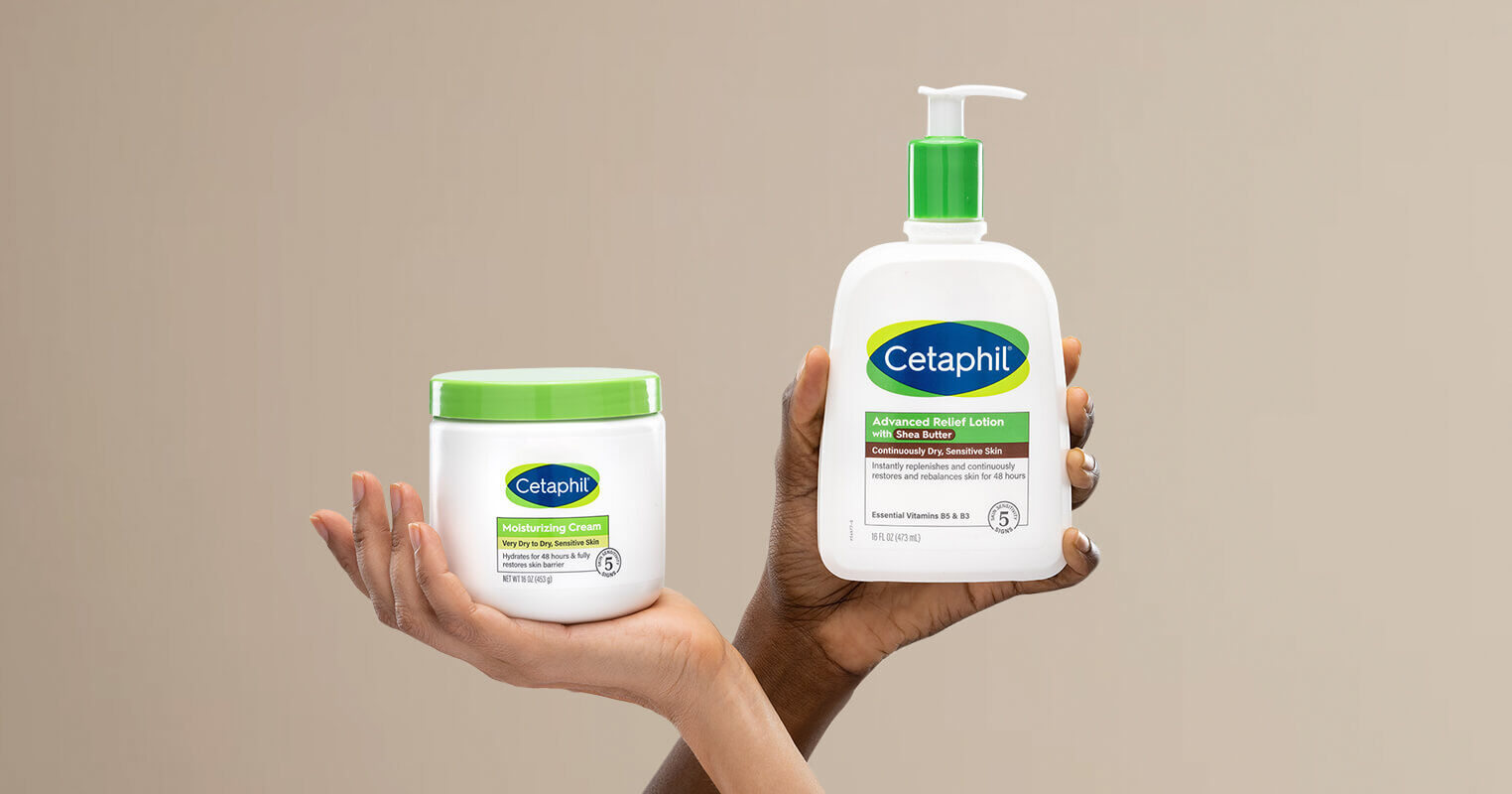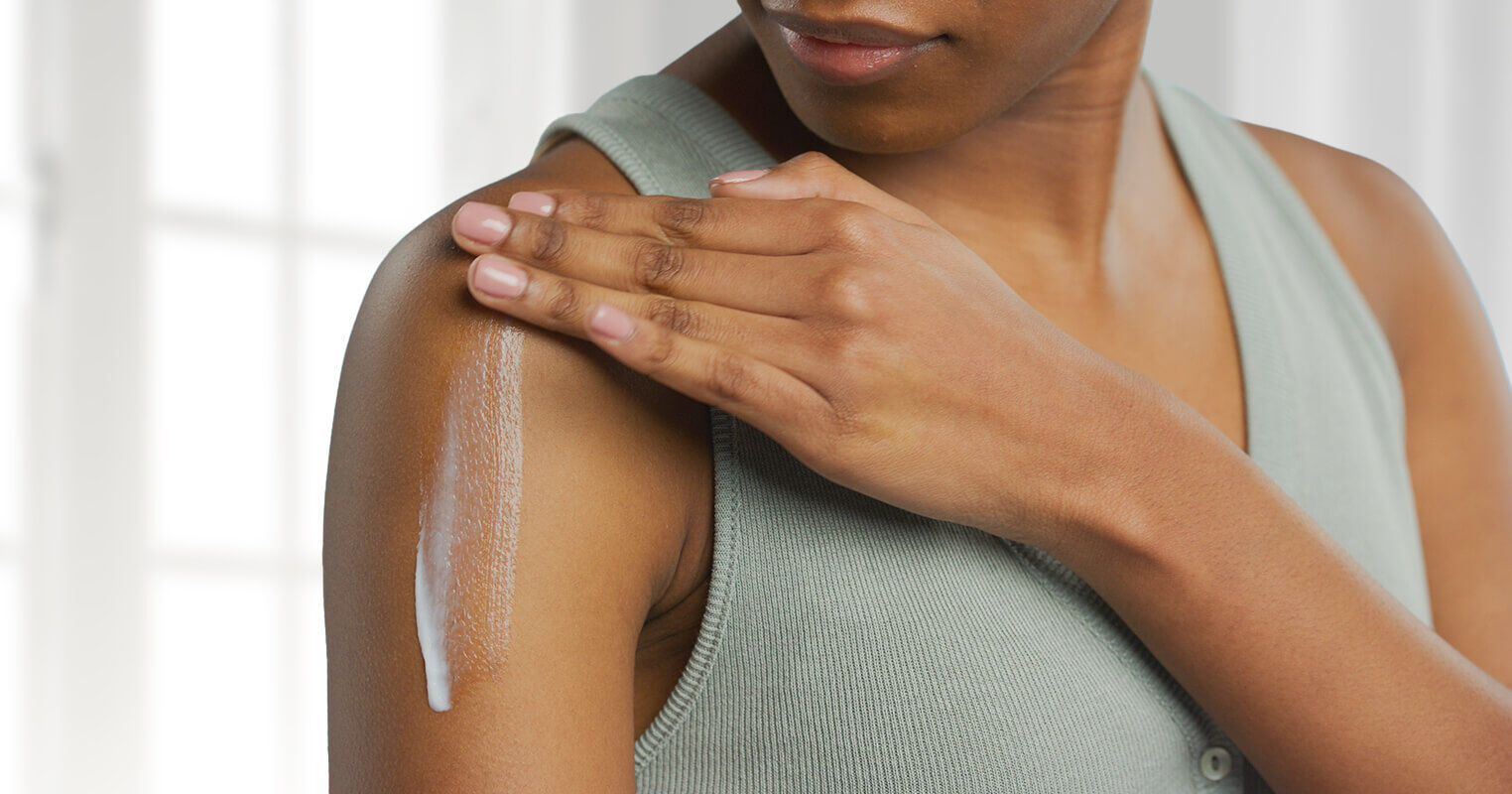
Face & body cream vs body lotion – What's the difference?
With a growing number of options for different types of moisturizers, it can be difficult to distinguish which one may suit your unique skin needs better. Some moisturizers are more suitable for the body, whereas others are designed to moisturize the face. As the seasons change, it is particularly important to consider which type of moisturizer can most effectively protect your skin in different weather, particularly the winter months.

What’s the difference between face & body cream and lotion?
Both of these products have been developed to moisturize the skin. The main difference between creams and lotions is their compositions, resulting in very different consistencies.
Creams contain a high oil content, so they are dense and thick. These properties enable creams to lock in moisture and/or provide a moisturizing layer that keeps skin hydrated and supple. For this reason, they are better for people with dry skin.
On the other hand, lotions are emulsions that have significantly less oil, meaning they are less sticky and easier to apply. Lotions are better for those with oily skin, as their lighter composition can help to prevent clogged pores. As lotions allow more breathability than creams and are favored for the summer months.

Body Cream
Body creams have a heavier, thicker consistency than lotions due to a higher percentage of oil in their formulations. That is why creams are the perfect formulations for products that help boost skin firmness and prevent excess moisture loss.
Cetaphil Moisturizing Cream helps provide intense rehydration to dry skin and is proven to lock in moisture for up to 48 hours. It is suitable for even sensitive or itchy skin.

Face Cream
Face creams are designed specifically for the face, to moisturize and support its unique skincare needs. Facial skin tends to be thinner than skin on other parts of the body, especially, the skin under your eyes. The skin on your face is also more likely to be exposed and affected by harsh weather and sunlight. There are a greater number of sebaceous glands on the face than the body. These glands produce oil and can be influenced by both hormonal and environmental factors, leading to some people having oil imbalances.
Face cream addresses these unique needs; for example, Cetaphil Daily Facial Moisturizer SPF 35 — for all skin types, including those with sensitive skin — is formulated to help protect facial skin from sun damage as well as assist in maintaining optimal levels of hydration.
Face cream is typically a lighter formulation than body cream and contains unique ingredients, catering to the most sensitive areas of facial skin. For example, Rich Hydrating Cream, containing both hyaluronic and linoleic acids, instantly rehydrates and helps strengthen the skin's natural moisture barrier to soothe skin from overnight dryness. It Is also fragrance-free, so won’t clog pores.
To find out more about what these terms mean and why they may be important for your skin, visit our page: What do ‘non-comedogenic;, ‘hypoallergenic and fragrance-free actually mean?

Body Lotion
As lotions have a lower viscosity than creams, they tend to be thinner with higher water content. These properties make them more suitable for skin that is not very dry and for those who prefer to have a less creamy texture on the body. A lotion can also be suitable for both hot weathers, as well as for use during the day.
Other ingredients can be added to lotions to help boost their moisturizing effects, for example, Shea butter. The benefits come from the butter's high fatty acid content and, when applied topically, can be rapidly absorbed into the skin. For example, Cetaphil Advanced Relief Lotion with Shea Butter is clinically proven to lock in moisture, and continuously hydrate skin for a full 48 hours. And suitable for babies aged 3 months and older, is the Baby Ultra Soothing Lotion, which includes a hypoallergenic formula that helps soothe and protect skin from dryness, leaving it feeling healthy and hydrated.
Face Lotion
Face lotion can also be used to combat dryness, and meet the unique needs of facial skin. The lotion component makes the product suitable for lightweight, quick skin hydration. If your skin requires only a light moisturizer, and you dislike having a heavy consistency on your skin, then a face lotion might be a suitable alternative.
For example, take a look at our Daily Oil-Free Hydrating Lotion. Suitable for combination skin, clinically proven to remain gentle on sensitive skin while ensuring immediate hydration.
To find out more about how to support your skin from dryness, read ‘Dealing with 5 common causes of dry skin’ and discover ways to aid dry skin.
What’s the difference between face and body moisturizers?
Since the skin on your face and body have distinct features and needs, you’ll find face and body moisturizers have properties to support the differences.
The delicate skin on the face can often be thinner than skin elsewhere on the body. As facial skin contains more oil glands, it is more prone to acne and oil imbalances. However, skin on the body, especially the feet and back, is often thicker making it more resilient.
Despite stimulating vitamin D production, providing a sense of well-being, excessive sunlight can lead to fine lines and wrinkles. To help combat this, moisturizers for the face usually contain SPF to protect from UVA/UVB rays and other ingredients to prevent and tackle the appearance of fine lines and wrinkles. Cetaphil face moisturizers have been specifically designed to support the needs of this thinner, delicate skin.
So, what should you consider when it comes to products to use on your face?
It is essential to consider your skin's own needs when looking for the right product. Does the skin on your face suffer from dryness, or is it prone to being more oily? If it tends to be very dry, using a face cream would give it the hydration boost it needs by locking in moisture for longer. However, if it tends to get oily, a face lotion may be more appropriate.
It is also important to consider other skin needs, such as whether you’re acne-prone or looking to target the appearance of fine lines and wrinkles. Different face moisturizers contain distinct ingredients designed to tackle individual skin concerns. For example, Gentle Clear Mattifying Acne Moisturizer contains an acne-fighting salicylic acid to help clear and prevent breakouts, plus skin nourishing botanicals and a prebiotic to soothe troubled skin.
To find out even more about which ingredients may benefit your skin type visit the “Our Ingredients” page.

Suppose your skin is often exposed to the sun and you’re concerned about skin damage. In this case, it may be worth considering Cetaphil’s Daily Facial Moisturizer SPF 15 or SPF 50 which can help provide hydration as well as support in preventing sun damage.
If you are concerned about the hydration and quality of your skin, then Deep Hydration Healthy Grow Daily Cream with hyaluronic acid is formulated to immediately soothe the skin and aid the restoration of skin's radiant appearance.
Finally, if you desire a matte appearance to the skin whilst gaining hydration and sun protection, you may want to consider Cetaphil’s DermaControl Oil Absorbing Moisturizer SPF 30 with its unique Micropearl technology to help absorb oil on the skin's reducing shine. It is particularly suitable for skin vulnerable to irritation as it contains Oleosome technology™, which includes a lower concentration of sunscreen filters and with greater hydration.













